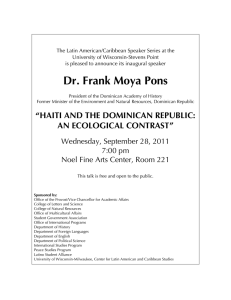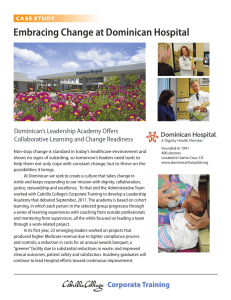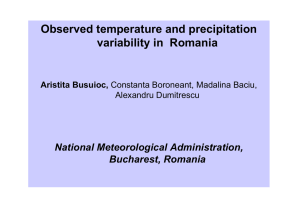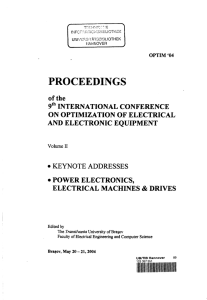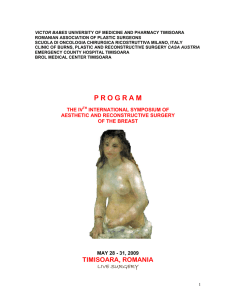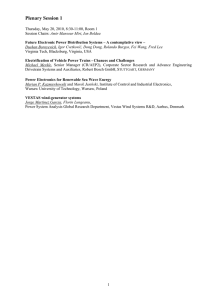OECD Global Forum on Education: Improving the Effectiveness of Education... Workshop 5: Education and Economic Development for Integration into the...
advertisement
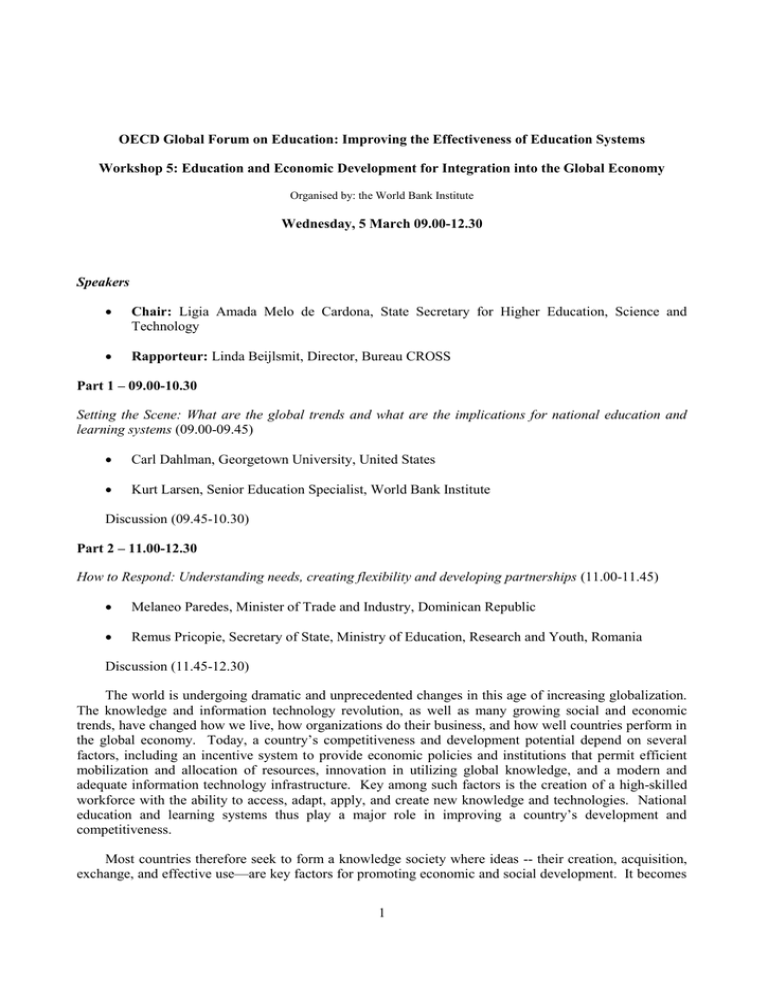
OECD Global Forum on Education: Improving the Effectiveness of Education Systems Workshop 5: Education and Economic Development for Integration into the Global Economy Organised by: the World Bank Institute Wednesday, 5 March 09.00-12.30 Speakers Chair: Ligia Amada Melo de Cardona, State Secretary for Higher Education, Science and Technology Rapporteur: Linda Beijlsmit, Director, Bureau CROSS Part 1 – 09.00-10.30 Setting the Scene: What are the global trends and what are the implications for national education and learning systems (09.00-09.45) Carl Dahlman, Georgetown University, United States Kurt Larsen, Senior Education Specialist, World Bank Institute Discussion (09.45-10.30) Part 2 – 11.00-12.30 How to Respond: Understanding needs, creating flexibility and developing partnerships (11.00-11.45) Melaneo Paredes, Minister of Trade and Industry, Dominican Republic Remus Pricopie, Secretary of State, Ministry of Education, Research and Youth, Romania Discussion (11.45-12.30) The world is undergoing dramatic and unprecedented changes in this age of increasing globalization. The knowledge and information technology revolution, as well as many growing social and economic trends, have changed how we live, how organizations do their business, and how well countries perform in the global economy. Today, a country’s competitiveness and development potential depend on several factors, including an incentive system to provide economic policies and institutions that permit efficient mobilization and allocation of resources, innovation in utilizing global knowledge, and a modern and adequate information technology infrastructure. Key among such factors is the creation of a high-skilled workforce with the ability to access, adapt, apply, and create new knowledge and technologies. National education and learning systems thus play a major role in improving a country’s development and competitiveness. Most countries therefore seek to form a knowledge society where ideas -- their creation, acquisition, exchange, and effective use—are key factors for promoting economic and social development. It becomes 1 imperative for countries to create a competitive base not just of physical infrastructure and materials but of human skills on the individual, organizational, and community level. This implies new challenges for developed as well as developing countries' education and learning systems to educate more, better, and over the lifespan. Given the complex set of challenges facing the education sector, policymakers and educators need to put the individual learner and hers or his demands at the center of education policies for the knowledge economy instead of traditional “supply side” thinking in terms of education offerings by sectors and institutions. In this changing context, education and learning systems need to adapt and respond in the following ways: Understanding needs: Developing new approaches to link education to the labor market and responding to changes by developing a system of lifelong learning. Addressing challenges: Building a responsive and flexible education system, developing core competencies and skills, and strengthening school to work linkages. Applying tools and strategies: Examining new trends in governance, management, and financing, promoting public-private partnerships, and using effective applications of ICT in education. This session will explore in depth how national education and learning systems are adjusting, adopting, shaping and taking advantage of the global “knowledge economy” trends. The following questions will lead the discussions: Developed countries often have the competitive advantage in developing high human skills but increasingly it seems that a substantial amount of the work requiring high skills and intermediate skills may also migrate to some developing countries such as e.g. India and China. How will these dynamics change the kinds of skills that are demanded in the market and how will that vary with national labor cost structures? How can countries at various points along the development spectrum prepare themselves to avoid the hazards and respond to the opportunities created by these new dynamics? What options for developing countries that are not part of the global value and skills “chains”? The production and services have become more customized, and that has caused fundamental changes in the workplace in terms of the organizations, the modes of operations, the nature of work activities and hence expectations on individuals. What are such challenges? Are education systems from early childhood to lifelong learning prepared for such challenges? What are the emerging reforms in education responding to such challenges? How are countries at different development stages affected and how do they respond? The presenters in the sessions will address these issues with concrete examples from different countries and world regions such as China, Dominican Republic, Europe, India, Romania, and the United States. There will be a strong focus on interaction and discussion 2
